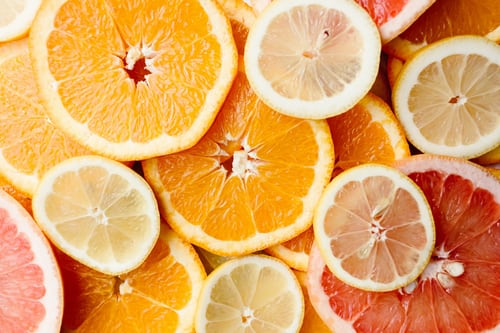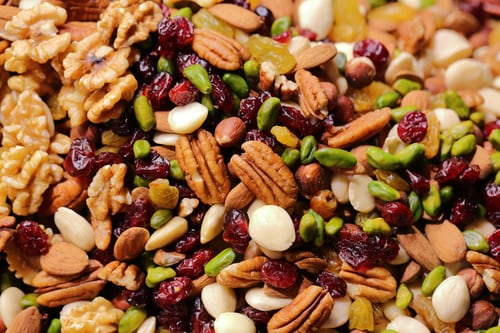
A Beginner’s Guide to Vitamins: Sources and Right Doses
Studies have shown that most people tend to suffer deficiency in at least one essential mineral or vitamin that the body needs to function properly. However, only a few care enough to test for these deficiencies before they go shopping for over-the-counter supplementary vitamins to add to their diet, believing that there’s no harm in doing so. This is completely untrue; not all vitamins are created equal and each one has a specific recommended dose that the body can benefit from. If you are planning on visiting a doctor soon to identify if you have any vitamin deficiency, read this article for an introduction to the vast world of vitamins. Below, you will find a beginner’s guide to vitamins, including their sources and right doses.
Vitamin A
Vitamin A, also known as Retinol, is one of the basic essential vitamins that fall under the fat-soluble vitamin category. Fat-soluble vitamins can be stored in the body for later use, which might explain why we are less likely to suffer from deficiencies in these vitamins. Vitamin A is known for supporting vision, fortifying the immunity system, and helps in red and white cell rejuvenation. Foods rich in vitamin A include carrots, sweet potatoes, and the notorious kale. Dosage differs according to age, gender, and overall health condition. However, on average, men need 900 micrograms/day while women need only 700 micrograms/day.
Vitamin B Group
There are a number of vitamin Bs that are all water-soluble which means that your body can’t store any excess and will need daily intake. Here are the main types of vitamin B:
Vitamin B12
Known as Cobalamin, vitamin B12 is essential for cell formation and DNA production. Unfortunately for vegans, vitamin B12 can only be found in animal byproducts like meat, fish, eggs, and dairy. However, if you follow the latter diets, the experts of https://supplementfirst.com/collections/douglas-laboratories recommend shopping for supplementary vitamin B complex tablets to cover your body’s needs for the entire B group vitamins. Keep in mind that B12 deficiency increases your risk of Alzheimer’s, so you wouldn’t want to take any chances. The recommended dosage for B12 is 2.4 micrograms/day for those above the age of 14.
Vitamin B6
Vitamin B6, or Pyridoxine, plays an important role in helping your body produce antibodies to keep your immune system healthy. The main source of Vitamin B6 is fish and beef liver, however, vegetarians and vegans can get their vitamin B6 needs from starchy vegetables like sweet potatoes and taro. The recommended dose for men and women alike is 1.3 milligrams/day. However, after the age of 50, men will require a higher dose at 1.7 milligrams/day versus 1.5 milligrams/day for women.
Vitamin B1
Also known as Thiamin, vitamin B1 aids in metabolism and muscle contraction and can be found in whole grains and meat. Both men and women can do with 100-300 milligrams/day.
Vitamin C
Vitamin C is another water-soluble vitamin that you have to take on a daily basis if you want to have strong bones, an efficient immune system, and increase your body’s ability to fight diseases and free radicals. Raw fruits and vegetables are excellent sources of vitamin C including tomatoes, red bell pepper, and of course citrus fruits like lemons and oranges. For men, 90 milligrams/day is the recommended dosage of vitamin C, while women need only 75 milligrams/day.
Vitamin D
Vitamin D is directly associated with fatigue and depression. If you live in a cold gloomy climate and rarely get enough sunshine, you need to pay close attention to your Vitamin D levels. While fatty fish like salmon and mackerel contain some vitamin D, nothing beats a daily walk in the sun to up your vitamin D levels. People under the age of 70, regardless of gender, need 15 micrograms/day of Vitamin D. Above the age of 70, the recommended dose increases to 20 micrograms/day.
Vitamin E
Vitamin E is a fat-soluble vitamin that protects the health of the skin and the eyes and plays a key role in fighting infections. Oils, nuts, and seeds are all rich in vitamin E. Adding canola and olive oil to each of your meals is an easy way to maintain the recommended daily dosage which is 15 milligrams/day.

Vitamin K
Vitamin K is important for blood clotting and can be found in vegetables like swiss chard and broccoli. Men need 120 micrograms/day while 90 micrograms/day is enough for women.
You need enough vitamins to stay healthy and allow your body to function at its best.
The above guide can hopefully ease you into learning more about vitamins and how each one can help you with any ailments that you might be suffering from. But, you should always make sure that you follow the dosage recommended by your doctor because, as you already know, too much of a good thing can be bad.











